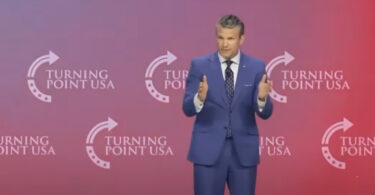Harvard Professor: “By overreaching, by resorting to compulsion, by forcing people to toe a political line, by imposing ideological litmus tests, by incentivizing insincerity, and by creating a circular mode of discourse that is seemingly impervious to self-questioning, the current DEI regime is discrediting itself.
It would be hard to overstate the degree to which many academics at Harvard and beyond feel intense and growing resentment against the DEI enterprise because of features that are perhaps most evident in the demand for DEI statements. I am a scholar on the left committed to struggles for social justice. The realities surrounding mandatory DEI statements, however, make me wince. The practice of demanding them ought to be abandoned, both at Harvard and beyond.”
Another liberal wakes up about DEI.
By Harvard Professor Randall Kennedy | Harvard Crimson
On a posting for a position as an assistant professor in international and comparative education at the Harvard Graduate School of Education, applicants are required to submit a CV, a cover letter, a research statement, three letters of reference, three or more writing samples, and a statement of teaching philosophy that includes a description of their “orientation toward diversity, equity, and inclusion practices.”
At Harvard and elsewhere, hiring for academic jobs increasingly requires these so-called diversity statements, which Harvard’s Derek Bok Center for Teaching and Learning describes as being “about your commitment to furthering EDIB within the context of institutions of higher education.”
By requiring academics to profess — and flaunt — faith in DEI, the proliferation of diversity statements poses a profound challenge to academic freedom.
A closer look at the Bok Center’s page on diversity statements illustrates how.
For the purpose of showcasing attentiveness to DEI, the Center suggests answering questions such as:
“How does your research engage with and advance the well-being of socially marginalized communities?”;
“Do you know how the following operate in the academy: implicit bias, different forms of privilege, (settler-)colonialism, systemic and interpersonal racism, homophobia, heteropatriarchy, and ableism?”;
“How do you account for the power dynamics in the classroom, including your own positionality and authority?”;
“How do you design course assessments with EDIB in mind?”; and
“How have you engaged in or led EDIB campus initiatives or programming?”
The Bok Center’s how-to page mirrors the expectation that DEI statements will essentially constitute pledges of allegiance that enlist academics into the DEI movement by dint of soft-spoken but real coercion: If you want the job or the promotion, play ball — or else.
Playing ball entails affirming that the DEI bureaucracy is a good thing and asking no questions that challenge it, all the while making sure to use in one’s attestations the easy-to-parody DEI lingo.
It does not take much discernment to see, moreover, that the diversity statement regime leans heavily and tendentiously towards varieties of academic leftism and implicitly discourages candidates who harbor ideologically conservative dispositions.
In addition to exerting pressure towards leftist conformity, the process of eliciting diversity statements abets cynicism.
Detractors reasonably suspect that underneath the uncontroversial aspirations for diversity statements — facilitating a more open and welcoming environment for everyone — are controversial goals including the weeding out of candidates who manifest opposition to or show insufficient enthusiasm for the DEI regime.
Detractors also reasonably object to what they see as a troubling invitation to ritualized dissembling. A cottage industry of diversity statement “counseling” has already emerged to offer candidates prefabricated, boilerplate rhetoric.
Candidates for academic positions at Harvard should not be asked to support ideological commitments.
Imagine the howl of protest that would (or should) erupt if a school at Harvard asked a candidate for a faculty position to submit a statement of their orientation towards capitalism, or patriotism, or Making America Great Again with a clear expectation of allegiance? Such pressure constitutes an encroachment upon the intellectual freedom that ought to be part of the enjoyment of academic life.
Demands for DEI statements are also counterproductive to efforts to undo the effects of long overlooked invidious social discriminations in academia. It is important to remember that the DEI ethos did not emerge from nowhere — it emerged from a laudable determination to free academia of attitudes and practices that impeded potential contributors for prejudicial reasons, thereby depriving institutions of higher learning of useful talents.
Universities are under a legal, moral, and pedagogical duty to take action against wrongful discriminatory conduct. But demands for mandatory DEI statements venture far beyond that obligation into territory that is full of booby-traps inimical to an intellectually healthy university environment.
By overreaching, by resorting to compulsion, by forcing people to toe a political line, by imposing ideological litmus tests, by incentivizing insincerity, and by creating a circular mode of discourse that is seemingly impervious to self-questioning, the current DEI regime is discrediting itself.
It would be hard to overstate the degree to which many academics at Harvard and beyond feel intense and growing resentment against the DEI enterprise because of features that are perhaps most evident in the demand for DEI statements.
I am a scholar on the left committed to struggles for social justice. The realities surrounding mandatory DEI statements, however, make me wince.
The practice of demanding them ought to be abandoned, both at Harvard and beyond.
Randall L. Kennedy is the Michael R. Klein Professor at Harvard Law School.
–
From one the many good comments on this article:
“. . . There is zero benefit to making sound logical arguments against DEI and its associated stupidity. Leftism doesn’t come from a place of logic.
DEI comes from the human need for religion. But not the need to believe in a God, rather from the baser desire to feel morally superior to others.
Leftism is this weird mix of envy of merit and moral self-righteousness.”
and
“A key element of “progressive” ideology is the belief that there are absolutely no holds barred in ensuring the triumph of the ideology. It has already been the case for many years that leftist professors will downgrade assignments with non-leftist ideas, no matter how well argued; this is a professional abuse that is seldom, if ever, challenged.
It was a very easy step from there to hiring practices that discriminate against whites, males and heterosexuals, and thence to DEI pledges, which are basically nothing less than tyrannical mandates to bend the knee to the kooky DEI ideology, in order to work as a scholar.
The purpose of all this is very obvious: since universities are gateways to political power and high status professions like medicine and law, the left sought to create a political monoculture that would eventually physically eliminate their enemies from the corridors of power, whether the US population liked it or not.
It was never anything but a power grab, it just took too long for the opposition to recognize it as such.
Now, that future threat is daily reality; even medical schools and law schools have “gone woke” with horrific results, and science education has already been warped almost beyond recognition by the injection of this neo-Lysenkoist gibberish. And don’t get me started on the ghastly meltdown of K-12 that is fundamentally driven by the brainwashing of an entire generation of young teachers in left-controlled schools of education.”
and
“DEI is discrimination, plain and simple. But progressives despise meritocracy for one simple reason: They cannot control the outcomes it produces, which in turn reduces their power–which is the only thing they really care about.”








Leave a Comment